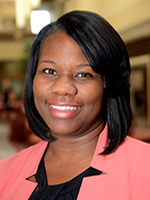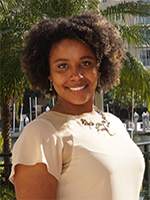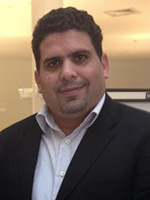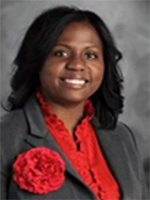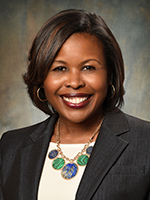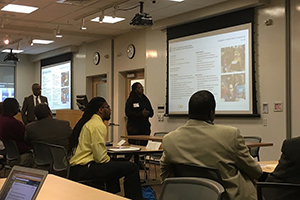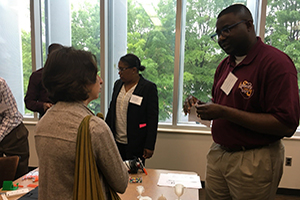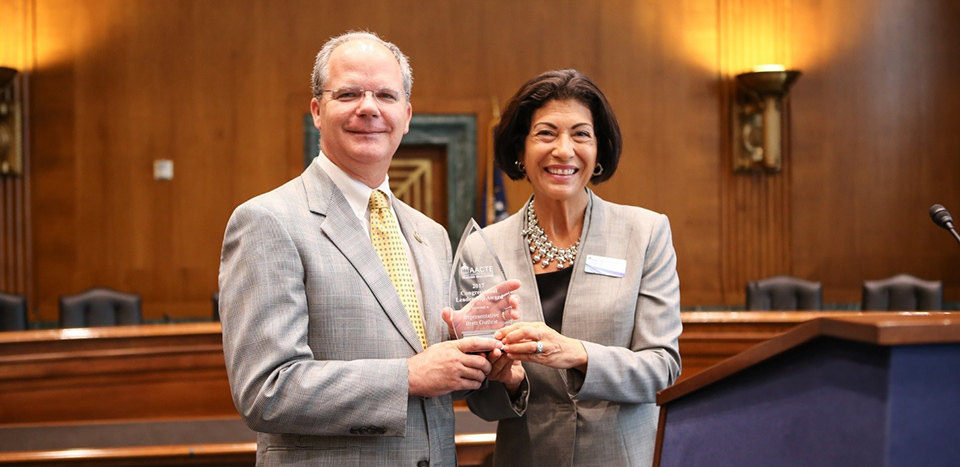20 Jun2017
By Shawn Karim
The latest monthly episode of Education Talk Radio spotlighted the AACTE Holmes Program and other efforts to increase the diversity of the U.S. teaching workforce. In the June 14 show, host Larry Jacobs was joined by Dean Monika Shealey of Rowan University (NJ), Student Services Director Jarren Jeffery of Mount Vernon High School (Fairfax County, VA), current Holmes Scholars Janelle Alexander (Rowan University) and Dana Dunwoody (Boston University, MA), recent Holmes alumnus Ahmed Fahad (University of Cincinnati, OH), and AACTE’s Tim Finklea.
Schools across the country have more diverse student populations than ever, yet the teaching workforce is still predominantly White and female. The AACTE Holmes Program, which for decades has supported students from historically underrepresented backgrounds pursuing doctorates in education, was expanded 3 years ago to include master’s, undergraduate, and even high school students in an effort to provide deeper support in the pipeline of future educators.
20 Jun2017
By Mary Curran
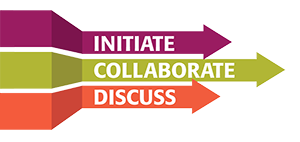
Have you ever wondered what it takes to develop a teacher education program that prepares teachers to teach for global competence? Or how your own educator preparation unit is progressing in its efforts to internationalize?
If you are a dean/director of teacher education, you can take a survey this summer to find out. AACTE’s Internationalizing Teacher Education Topical Action Group (TAG), Global Teacher Education Inc. (GTEI), and the Longview Foundation have combined resources to create a self-reflection tool that will help teacher education deans and directors assess their own colleges’ internationalization efforts.
20 Jun2017
By Amanda Lester
A member of the North Carolina A&T State University team shares its work during the May event at Morgan State University.
Abiodun Fasoro of Central State University discusses his campus’ minority male STEM program during the Verizon Innovative Learning Showcase.
Last month, I had the privilege of participating in the Building a Networked Improvement Community Around Engaging Minority Males in STEM Workshop at Morgan State University. The workshop focused on advancing the work of the Early STEM Engagement for Minority Males (eSEM) Initiative, a network of 16 minority-serving institutions (MSIs).
Led by Morgan State and in partnership with Verizon Innovative Learning Programs, SRI Education, the National CARES Mentoring Network, and local school districts, eSEM is a growing collaborative seeking to address STEM achievement challenges and improve outcomes for middle school minority male students through the development of a Networked Improvement Community (NIC). The initiative is supported through grants from the National Science Foundation and includes the following universities:
15 Jun2017
By Kristin McCabe

Data, data everywhere – so now what do you do? When you are awash in student test scores, survey responses, or research results, how do you determine what they mean – and what actions to take as a result?
For a concise and engaging introduction to data sources, uses, and improvement processes, try AACTE’s online professional seminar Using Data to Improve Student Outcomes, opening July 17 for a 3-week run on the FutureLearn social-learning platform. It requires only 3 hours per week and costs nothing! (Or you may choose to upgrade your enrollment, for a fee, to participate in tests, obtain a completion certificate, and gain unlimited access to course materials in the future. A completion certificate is required if you plan to become an AACTE consultant.)
13 Jun2017
By Jerrica Thurman, Ciera Simms and Shawn Karim

During the AACTE Washington Week, June 4-7, teacher educators, preservice teachers, and PK-12 school administrators united under the event theme “Diverse Perspectives, Deep Partnerships, One Profession.” The convening brought together attendees from across the nation to discuss important education policies and advocate for educator preparation with members of Congress and their staff.
13 Jun2017
By Kristin McCabe
Two new videos are available this week on AACTE’s Research-to-Practice Spotlight Series highlighting the St. John’s University (NY) School of Education clinical preparation program known as RISE, or the Residential Internship for St. John’s Educators. This week’s video interviews present faculty and administrators discussing various challenges they’ve had to overcome in setting up and sustaining the RISE Program – and why the results are worth the effort.
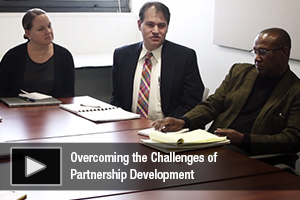
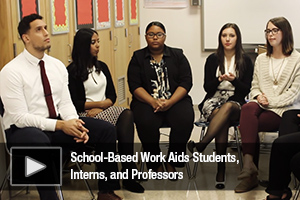
The School of Education at St. John’s University (SJU) and its Residential Internship for St. John’s Educators (RISE) have hit a stride with their clinical partnerships to prepare new teachers – but it wasn’t always easy. To get to this point, all parties have worked to overcome hurdles and cultivate strong relationships that set them up for successful navigation of future bumps in the road.
12 Jun2017
By Kristin McCabe

Nominations for the 2018 AACTE awards are now open on AACTE’s online submission site (except the Outstanding Book Award, which closed May 30). Applications for the Outstanding Dissertation Award are due August 18, and all other award submissions are due October 12.
Now in its 22nd year, AACTE’s awards program recognizes member institutions’ exemplary programs as well as individuals who have made noteworthy contributions to education preparation. For an overview of last year’s winners, see this press release.
12 Jun2017
By Ciera Simms

Earlier this spring, I had the privilege of attending an event at the John F. Kennedy Center for the Performing Arts in Washington, DC, for the release of results from last year’s National Assessment of Educational Progress (NAEP) in music and visual arts (Nation’s Report Card – 2016 Arts). Speakers from around the country discussed results from the assessment, shared videos from various programs that incorporate art into academic study, and led a question and answer session on topics such as art’s impact on their students, skills teachers use to integrate art in other subjects, and community involvement.
The program opened with a video overview of the arts assessment, which is founded on the belief that the arts are essential to every child’s complete development, fostering growth and creativity, providing a strong foundation for a holistic education, and equipping students to navigate through work and life challenges. Overseen by the National Assessment Governing Board and based on an arts framework developed by a committee of artists, educators, and other experts, the NAEP Arts Assessment has been conducted just four times to date: in 1972 (music only) and 1975 (visual arts only), then together in 1997, 2008, and 2016. Rather than reporting on individual students’ performance, NAEP tracks performance by group – such as region, gender, race, and other categories.
12 Jun2017
By Kevin Graziano, Teresa Foulger, Denise Schmidt-Crawford and David Slykhuis
The views expressed in this post do not necessarily reflect the views of AACTE.
To help educator preparation programs address calls for better preparing new teachers to integrate technology in their practice, we recently led a collaborative research effort to develop a set of teacher educator technology competencies. An article outlining the competencies and our underlying methodologies is currently in review for publication, and we look forward to disseminating the details soon – but for now, we’d like to share some background on what spurred the project and how we decided to approach it.
09 Jun2017
By Deborah Koolbeck
U.S. Representative Brett Guthrie (R-KY) and AACTE President/CEO Lynn M. Gangone celebrate Guthrie’s acceptance of the AACTE Congressional Leadership Award. The other recipient, U.S. Senator Benjamin E. Sasse (R-NE), was unable to attend the event but supported AACTE by securing the room for the Day on the Hill breakfast.
On June 7, AACTE honored U.S. Representative Brett Guthrie (R-KY) and U.S. Senator Benjamin E. Sasse (R-NE) for working with AACTE and its partners to rescind the U.S. Department of Education regulations on teacher preparation programs. The lawmakers received the 2017 AACTE Congressional Leadership Award, which is presented during AACTE’s Day on the Hill to recognize members of Congress who have played a strong leadership role in support of the profession.
09 Jun2017
By Renée A. Middleton
The views expressed in this post do not necessarily reflect the views of AACTE.
In certain circles, it is popular to view colleges and universities as the embodiment of an intolerant “education establishment” driven more by liberal ideology than by valued learning experiences. Particularly with the recent leadership transition in Washington, DC, espousers of this view have grown bolder in their accusations of brainwashing and progressive elitism in higher education. These claims are frustrating in that they betray a lack of familiarity with the mission of our institutions, but they are also dangerous: if used to erode public support for higher education, they will further impede access by those most in need.
While we welcome constructive criticism of our work, statements that delegitimize higher education are counterproductive and must be challenged. When officials suggest that professors are deviously indoctrinating students with a limited, biased, and distorted set of beliefs, such intimation is demeaning to faculty and students alike. And after 35 years in higher education, I can attest to the utter falseness of this assumption.
06 Jun2017
By Bryan L. Duke
It may not be often that a state chapter of AACTE seeks to create new legislation outlining expectations for teacher preparation, but that was the case for the Oklahoma Association of Colleges for Teacher Education (OACTE) during the past academic year.
For several years, state legislators had been proposing new dyslexia training requirements for all early childhood, elementary, and special education candidates. However, concerns and tensions escalated between educator preparation providers (EPPs) and interest groups who disagreed on the definition of the problem, the depth of training that would be appropriate, and language that might mandate particular programs and materials. Consequently, discussions and the relationship between groups deteriorated and were unproductive.
06 Jun2017
By Dana Dunwoody
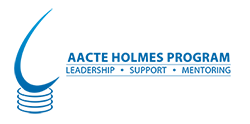
Since 1991, various iterations of the AACTE Holmes Program have catered to doctoral students from historically underrepresented backgrounds by providing conferences, mentoring, and other support. Since then, more than 700 Holmes Scholars have completed their terminal degree and moved beyond their student careers into research, policy, and academic positions across the nation. With Holmes’ growth into other education levels in the past 2 years, the Holmes Scholars Council is reaching out to our younger colleagues to determine their needs and how we might better tailor the program to meet them.
The Holmes community now consists of high school students (Holmes Cadets), undergraduates (Holmes Honors), master’s students (Holmes Master’s), and doctoral candidates (Holmes Scholars). To better serve all of our Holmes students, the council would like to hear from each member at the new levels – Cadets, Honors, and Master’s. Please encourage all of these Holmes students to take our needs assessment survey this month – it is anonymous and should take only 5-10 minutes to complete.
06 Jun2017
By Jerrica Thurman

The AACTE membership renewal season has officially begun! Each institution’s Chief Representative should have received an invoice via mail last month. Although the payment deadline is January 1, 2018, many of you have indicated you prefer to remit dues before your budget year ends in the summer – so we’ve made invoices available now for your convenience.
Your membership in AACTE, the nation’s largest network for educator preparation institutions, provides your faculty, staff, and students with access to valuable resources that help you achieve your program and career goals. Complimentary subscriptions, access to online resources, discounts for conferences and workshops, free continuing education opportunities, and inclusion in the membership directory are just a few of the benefits you’ve enjoyed during the past year.
06 Jun2017
By Shawn Karim
In the latest monthly episode of Education Talk Radio spotlighting AACTE member institutions’ work, the online radio show featured the work of three educator preparation programs to combat teacher shortages. Host Larry Jacobs was joined for the May 17 show by AACTE member deans Kim Metcalf from the University of Nevada-Las Vegas (UNLV), Patricia McHatton from the University of Texas-Rio Grande Valley (UTRGV), and Marcia Burrell from the State University of New York-Oswego (SUNY-Oswego) as well as Rod Lucero from AACTE.
Teacher shortages are plaguing many states and districts around the country, particularly in high-need fields and low-income schools. In addition to school-centered problems such as high teacher turnover and persistent gaps in the diversity of students and their teachers, preparation programs have experienced enrollment drops that further heighten the productivity challenge. “It has to do with, quite frankly, money,” Lucero said, noting that college students are leery of investing in an expensive degree for a career that lacks sufficient salary to repay their student loans, and some teachers start out earning below the poverty line.
